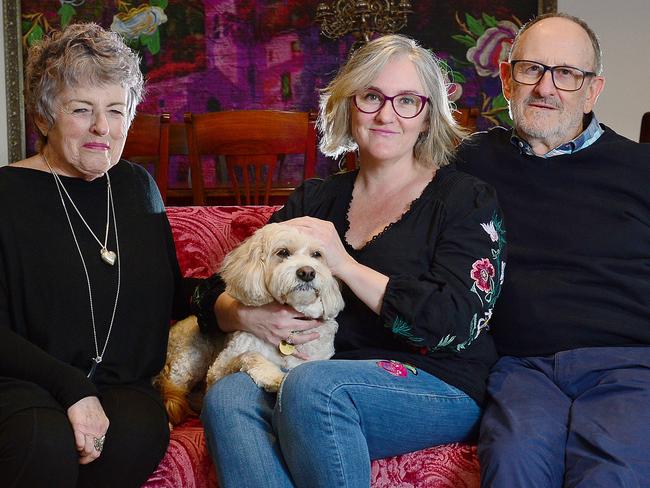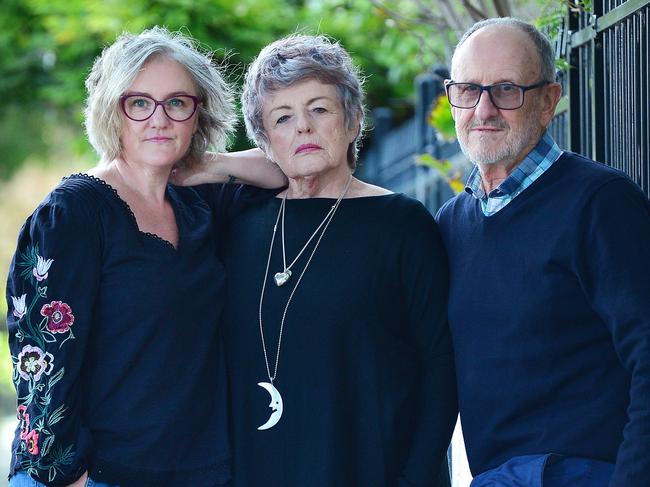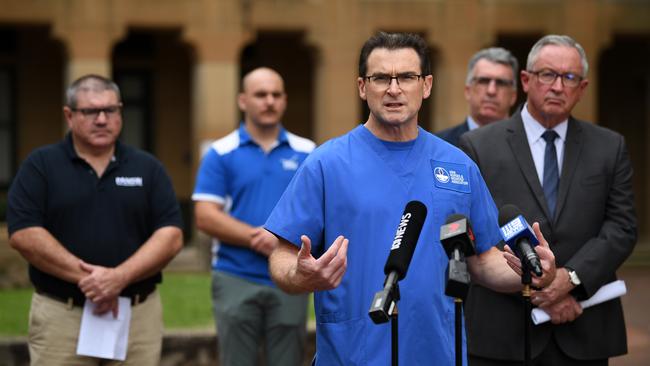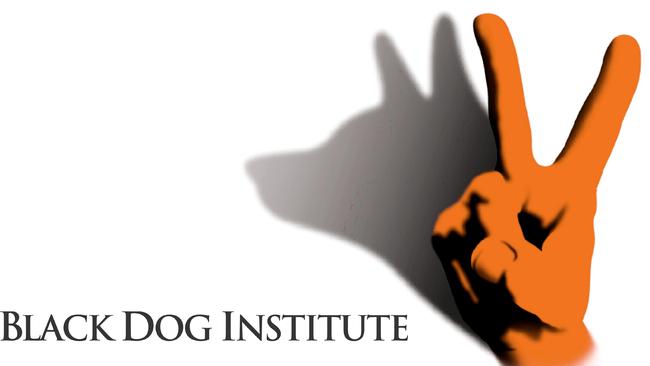Coronavirus discrimination: Survivors and health workers hit with unnecessary stigma
Heroic medical workers on the COVID-19 frontline are experiencing horrendous abuse, with Australians warned that unnecessary stigma could hinder our battle against the coronavirus.
Coronavirus
Don't miss out on the headlines from Coronavirus. Followed categories will be added to My News.
Janine Phillips survived COVID-19 alone in a foreign country but instead of feeling pleased she is immune she’s living in fear of being discriminated against.
Since returning to Australia she has been shocked that when she mentions she had the virus some people instinctively “step away” leaving her feeling very awkward because she’s likely to be immune and not at all dangerous.
As terror of the virus has turned into abhorrence of those who might be carrying it, heroic medical workers on the frontline are being treated like lepers, Asian Australians are being abused and relatives of those killed by it are reticent to speak in case they are victimised.
An aged care worker who inadvertently spread the virus was publicly attacked by a government minister for going to work even though they had no symptoms.
Real estate agents are refusing to rent properties to health workers.
In the Indian town of Indore doctors who were checking on a patient thought to have coronavirus were chased away by a stone throwing mob.
In the Philippines, a nurse had bleach thrown on him by attackers who feared he could be carrying the virus. His eyesight was permanently damaged.
Psychologist Patrick Corrigan told the journal Psychology Today “stigma arises when the virus and the person with the virus are conflated; when we change the question from what’s to blame to who’s to blame”.

National Mental Health Commission CEO Christine Morgan said stigma can be deadly in a pandemic because it can lead to people hiding their illness and they may not come forward for testing if they think they may suffer discrimination if they are found to have the virus.
“It is important to remember the virus is not the fault of anyone, it’s a common enemy we have to fight,” she said.
We don’t blame someone who develops cancer for their illness and in the same way we should not blame anyone who contracts COVID-19, she said.
Ms Phillips, a Melbourne-based online learning designer, was in Finland hoping to see the Northern Lights as part of a dream around the world trip to celebrate her 50th birthday when she was diagnosed with COVID-19 in mid-March.
Within three days she said she was over the worst but since coming home she’s cautious about who she tells she had COVID-19.
On her flight back to Australia after speaking to a flight attendant about her COVID-19 experience “the Customer Service Manager came over to talk to me and said some of the flight attendants where nervous when they heard I had the virus.”
“I explained that I hadn’t had symptoms for over 7 days, that I had all the paperwork from the Doctor that cleared me for travel and wasn’t unwell.”

The Captain spoke to the Health Department in Perth and some of the flight attendants started wearing masks and kept away from her.
“This made me feel very upset but I know it was because they didn’t understand how the virus works with immunity.”
“I did the right thing and stayed in quarantine for 14 days and I felt well. But I was anxious because of what I went through and this added to it,” she said.
Ms Phillip’s experience is not unique, nurses and midwives have had to stop wearing their uniforms in public because they are being spat on and accused of spreading the virus.
The NSW Nurses and Midwives Association said a nurse who had moved from Sydney to Coffs Harbour was initially refused rental accommodation by one real estate agent who feared she may spread coronavirus.

“We’ve had a number of reports about people being told in fuel stations they are disgusting for wearing their uniforms and I could refuse to serve you,” NSW Nurses and Midwives Association general secretary Brett Holmes told News Corp.
“No-one likes to be rejected or shunned and there is certainly no justification for that given our current situation,” he said.
The Rural Doctors Association of Australia (RDAA) said there had been disturbing reports of patients being turned away from essential health care because of perceived COVID risk.
AMA SA President Dr Chris Moy said one of his South Australian colleagues who worked in radiology had to change out of her uniform before travelling home on public transport because “people were staying away from her”.
Asian Australians have been racially abused because the virus spread from China and the Australian Human Rights Commission has reported 25 per cent of its racial discrimination complaints are now connected to COVID-19.
University of Melbourne epidemiologist Dr Kathryn Snow fears as we come out of lockdown and the virus inevitably spreads people will suffer blame and be shamed for infecting others.
A family dinner, for example, could turn into a guilt trip if an elderly relative is infected and dies, she warned.
“People will suffer inappropriate blame and people will also feel tremendous guilt if they thought they just had a bit of a cough and they went to a social event and they went to work and they end up giving the virus to somebody else,” she said.
She says the media and the public have to be careful about how they speak about the virus.
MORE NEWS
The 600 medicines now in short supply
50 Aussie research projects to beat coronavirus
MKR star reveals family cancer shock
Aussie COVID-19 vaccine at global ‘forefront’

This week the Federal Government provided funding to the Black Dog Institute to develop a smartphone app for health workers to help them deal with mental stress caused by COVID-19.
Surveys of health workers have found one in five are likely to develop mental health symptoms as a result of their difficult working conditions, fear regarding their own health and the difficult decisions they are having to make during pandemics.
The World Health Organisation said the best way to combat stigma “is building trust in reliable health services and advice, showing empathy with those affected, understanding the disease itself, and adopting effective, practical measures so people can help keep themselves and their loved ones safe”.
It says:
* Don’t – refer to people with the disease as “COVID-19 cases” or “victims” DO – talk about “people who may have COVID-19”
* DO – talk about people “acquiring” or “contracting” COVID-19
* Don’t talk about people “transmitting COVID-19” or “infecting others”
* Don’t – attach locations or ethnicity to the disease, this is not a “Wuhan Virus”, “Chinese Virus” or “Asian Virus”
Originally published as Coronavirus discrimination: Survivors and health workers hit with unnecessary stigma
